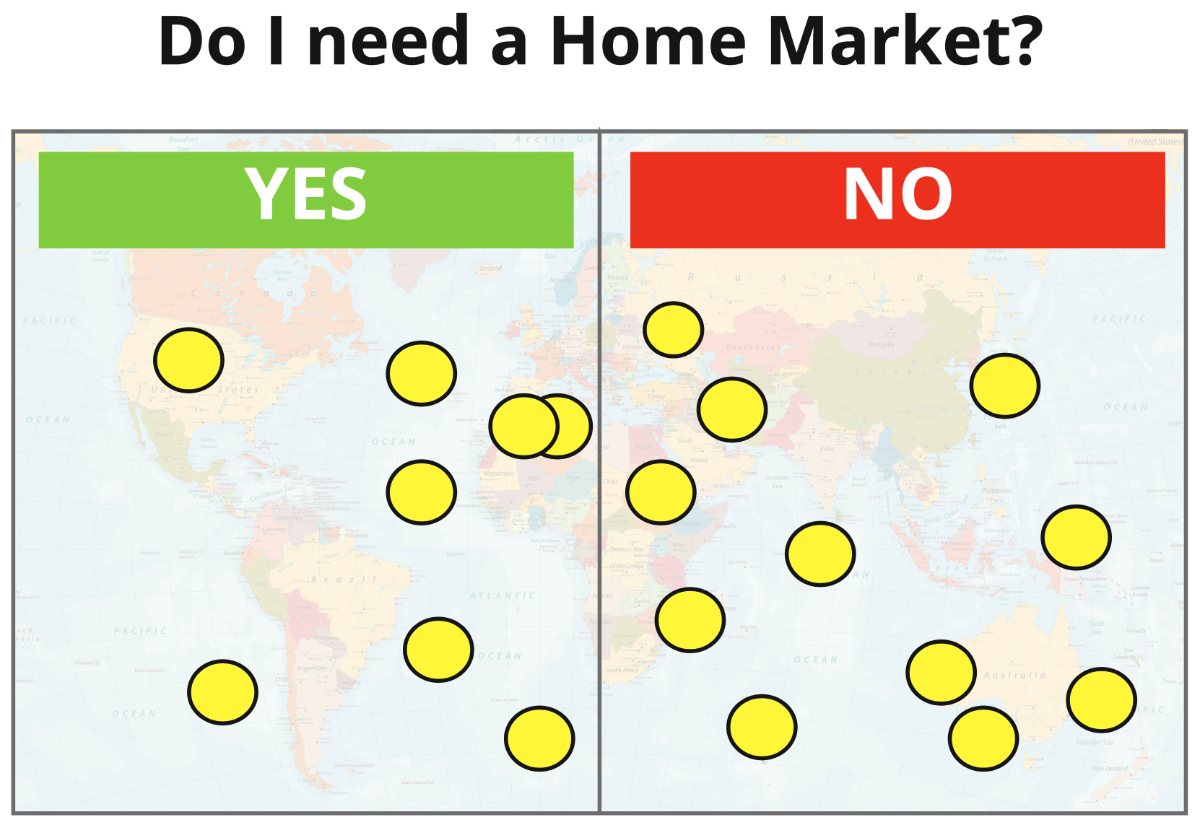Internationalization of Business: Home Market needed? YES or NO
Today I would like to share with you an experience I had a few weeks ago during a guest lecture at the University of Applied Sciences Cologne.
It is about the Home Market of companies that want to do business internationally. Is a Home Market mandatory?
What is the Home Market anyway?
There are a number of definitions. I find the following one helpful:
A Home Market is a geographical region such as a country, an area within a country or a city, where companies launch their products first. Usually, this is the region where the companies’ headquarters are located. (Source) For CocaCola, for example, this is the USA, for Heineken Beer The Netherlands, or more concrete, Amsterdam: “Born in Amsterdam, raised by the world”.
Is the Home Market an important aspect for internationalization?
In the master’s program International Marketing and Media Management at the University of Applied Sciences Cologne, students address the core issues of internationalization of businesses/companies. This includes, for example the selection of target markets, the choice of suitable market entry and market development strategies, and how to deal with different cultures and change management. In addition, the questions of which corporate goal should be pursued, the choice of business model and the importance of the Home Market are all key to give careful consideration.
For a long time, it was considered a foregone conclusion that a solid Home Market is an important prerequisite for successful internationalization of a business.
What do the students think about the Home Market
Since the lecture was held online, they were asked to leave their opinions on a virtual whiteboard. The result looked like this:

More than half of the students (11 out of 19) said that a strong Home Market is not a prerequisite for a successful international business. That was a surprise!
Their reasoning gave further insight into the respondents’ thinking:
Reasons for “NO” were mainly that global companies are at home everywhere and e-commerce enables business across borders, right from the start.
Students justified their “YES” by saying that you have to start the business in a specific country and every company needs a home.
A more nuanced view also led some students to answer that the need for a Home Market depends on the product and business model.
For comparison: poll on LinkedIn
The outcome of a poll I took on LinkedIn was somewhat different. Although the survey is only exploratory due to the small number of cases, the result is interesting. 77% of the respondents thought that a home market was necessary, only 23% did not see it as necessary.

As with students, some respondents chose neither alternative, commenting that “Home Market Yes or No” depends on a variety of factors, such as the type of markets, the business model, or the type of products. The definition of Home Market was also questioned. Can a Home Market in the border area of two countries at the same time be regionally limited to a small radius across the border? In fact, why not?
Conclusion
If the products themselves or the marketing are largely e-commerce based, then at first glance there is probably no need for a Home Market. Products such as software or apps, can be available on the global market right from launch. In contrast, products that need to be physically manufactured and distributed only gain access to markets through appropriate marketing and retail channels. And this access has to be resourced and organized.
It is also important to have a step-by-step market entry strategy and to decide where to start. Usually this is where the most comprehensive market knowledge and contacts exist and where the chance of success is greatest – where the business has its roots: in the Home Market! With the Home Market as a positive reference case, successful access to other markets is then much easier to achieve.
All in all, however, the question of Home Market cannot be answered in a general way, but only on a case-by-case basis.
How does this apply to your business?
- Do you need a Home Market?
- Have you defined the priorities as to which marekts to focus on first?
- Do you have market entry strategies for these target markets?
- Which strategic options for market development are relevant for you?
We will be happy to support you and your team in answering these and other key questions concerning the internationalization of your business. Let us talk about it.

He founded perspective: international in 2013. He works as a strategic advisor, operative facilitator and interim manager with many years of experience in internationalization and international business development.





